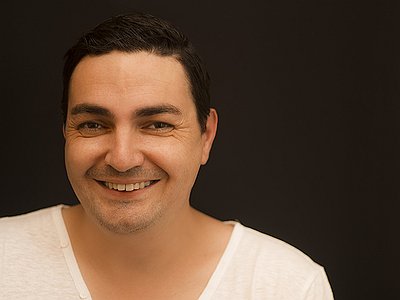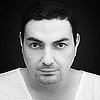Part 2
With more and more musicians creating than ever and more and more of these creations being released, what does this mean for you as an artist in terms of originality? What are some of the areas where you currently see the greatest potential for originality and who are some of the artists and communities that you find inspiring in this regard?
There are probably 50 times more producers compared to 10 or 15 years ago, it doesn’t mean that there is more quality, in fact it’s the opposite. That huge amount of music available on the market simply means you need to deal with 50 times more crap than before. It’s not an easy task anymore. Technology has given the opportunity to anybody to create music and to create a label, which is good because sometimes I find gems coming from nowhere, but it also means that you need to literally put your hands into shit in order to find gold.
How strictly do you separate improvising and composing?
Those 2 words are melted into one for me. You need improvisation during the composition process because it’s a good way to develop new ideas on the fly. When I start a track I usually have a loop of 4, 8 or 16 bars and lay down new ideas on top of that loop.
How do you see the relationship between sound, space and composition and what are some of your strategies and approaches of working with them?
In my opinion, everything is melted into one here too. When I compose I am more like an antenna, trying to listen to my brain; a sound calls another sound, an idea calls another idea, and I try to grab those ideas/sounds, place them into space and compose something that sounds good to my ears.
What's your perspective on the relationship between music and other forms of art – painting, video art and cinema, for example – and for you and your work, how does music relate to other senses than hearing alone?
I've already worked on a movie soundtrack where the goal of music is to emphasize the feelings on the screen, so for me there is a direct relation between ear and eye. Music is not only related to my ears, but also to my brain, that’s probably why I get shivers and goose bumps. When I hear a sound, it automatically creates a shape in my mind, or sometimes an object, or even an animal… for example some certain white noise FX coupled with a fast LFO can have the mental representation of an insect; don’t ask me why!
What's your view on the role and function of music as well as the (e.g. political/social/creative) tasks of artists today - and how do you try to meet these goals in your work?
My music always has the goal to make people dance, a kind of catalyst to seduction. Sometimes I feel weird that people are looking at me when I DJ, because for me they are supposed to hear and dance and seduce people around them. So to answer your question my music definitely has a social goal. I have a kind of old school approach, electronic music is described as repetitive music, the loop is supposed to create a state of trance, like African percussions use to, the goal is to create a unity of the crowd.
Listening is also an active, rather than just a passive process. How do you see the role of the listener in the musical communication process?
It’s totally related to the previous question, passive listening is for the living room, on your own. Active listening is for the dancefloor, and when we mention the dancefloor, we really talk about dancing, and dancing is part of the seduction process. That’s mainly why I try to play for the girls, because once you have all the girls on the dancefloor, you automatically get all the boys too. That’s my goal when I DJ and for me that’s the key of a successful night.
Reaching audiences usually involves reaching out to the press and possibly working with a PR company. What's your perspective on the promo system? In which way do music journalism and PR companies change the way music is perceived by the public?
PR is made to target and reach a better and wider audience in order to maximise the chances to be heard by a bigger number of people. It can be assimilated to marketing. I don’t think it changes the way the music is perceived by the public, I think it just gives a chance for more people to listen to new music.
Do you have a musical vision that you haven't been able to realise for technical or financial reasons – or an idea of what music itself could be beyond its current form?
I still have some difficulties to translate my ideas into sounds, but the more I work the easier it is… but like the phrase 'beauty is in the eye of the beholder', I think music has the form of its listener.






